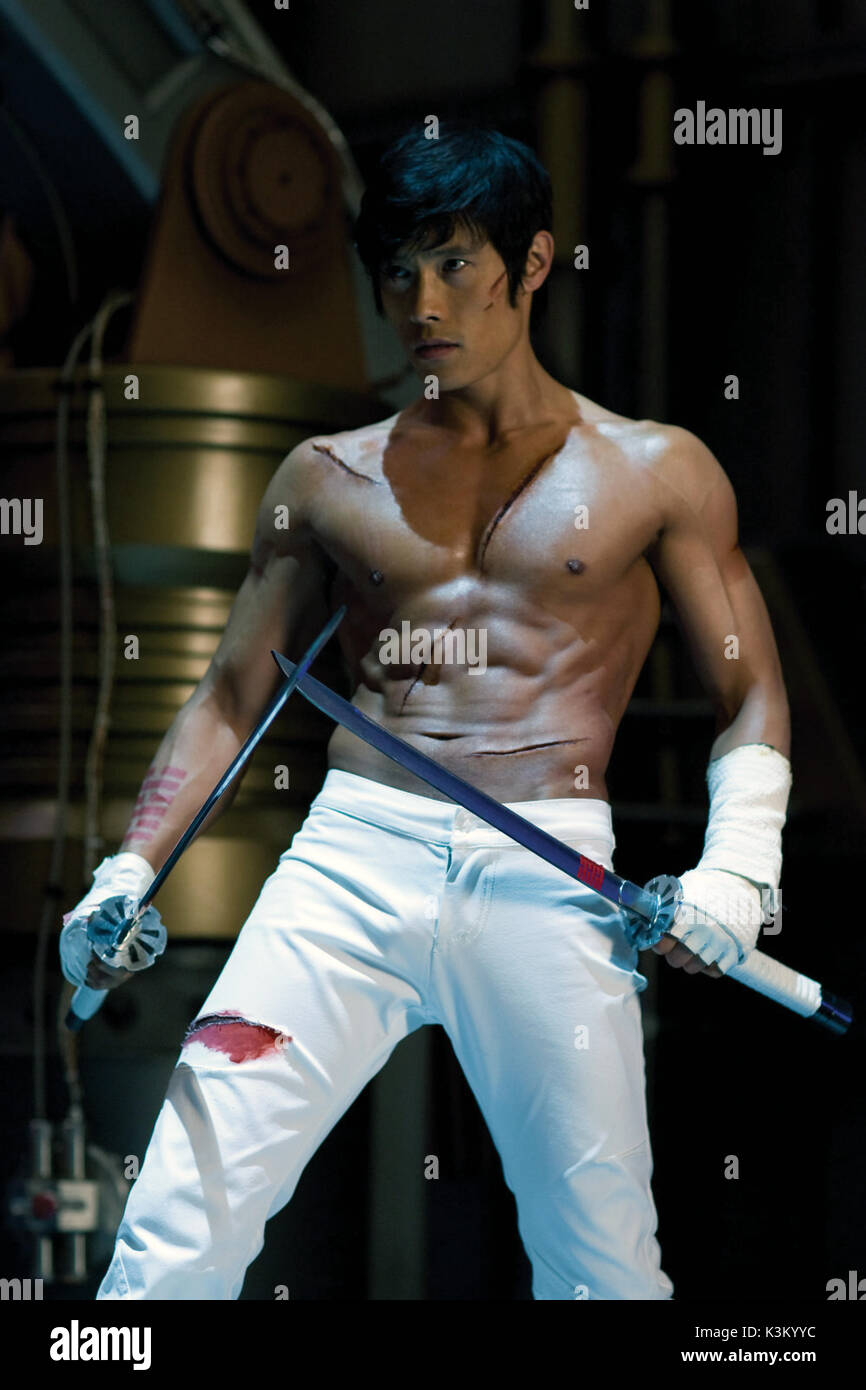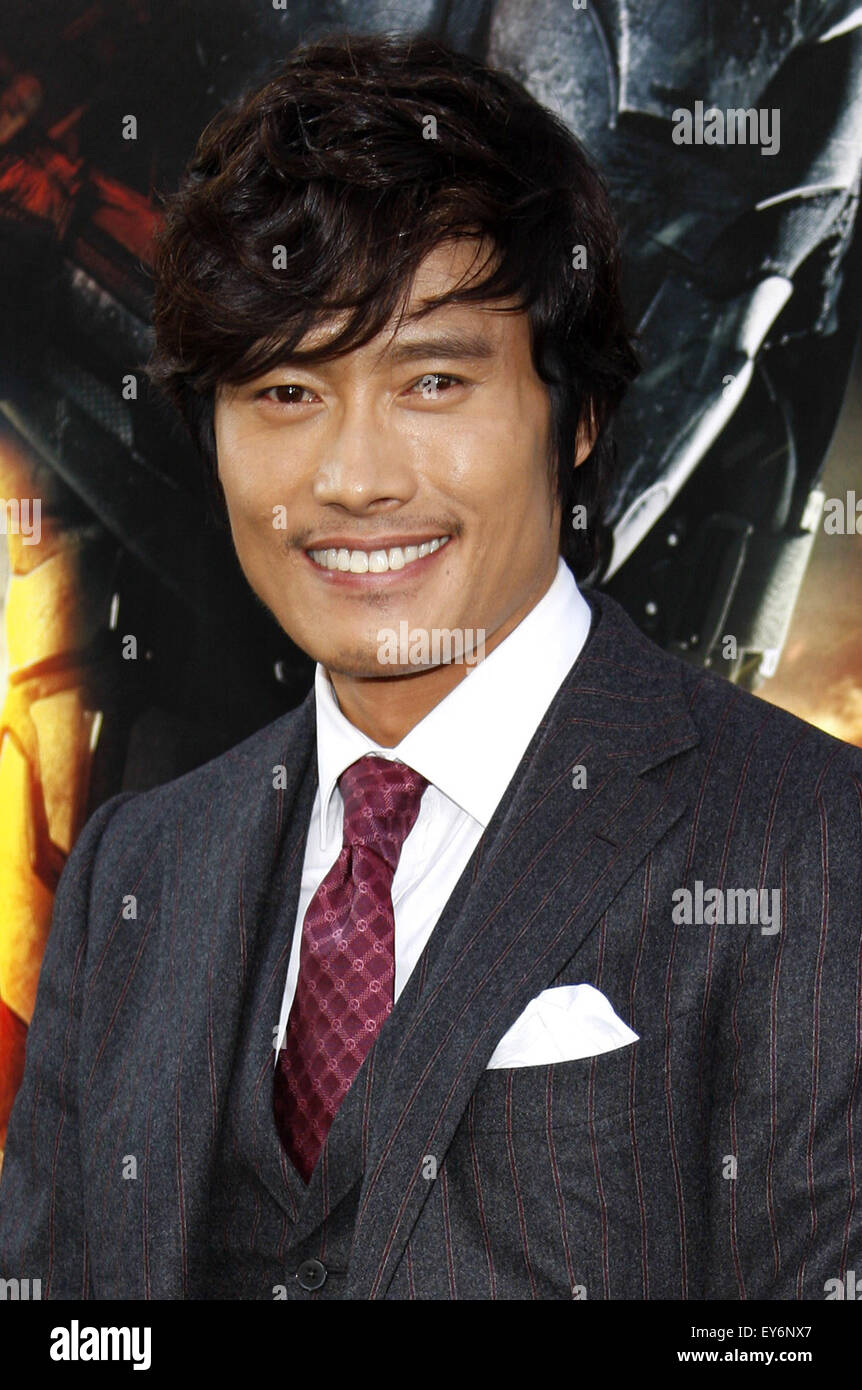Exploring Lee Byung-hun & His G.I. Joe Impact: A Deep Dive
Is it possible for a South Korean actor to conquer Hollywood and redefine action cinema? Lee Byung-hun, a name synonymous with both critical acclaim and box office success, has not only achieved this feat but continues to shape the landscape of international entertainment, captivating audiences with his talent and charisma.
Born on July 12, 1970, in Seongnam, South Korea, Lee Byung-hun has carved a remarkable path through the entertainment industry. His journey from a celebrated actor in his native country to a globally recognized star is a testament to his dedication, versatility, and unwavering commitment to his craft. Lee's impact extends beyond mere stardom; he represents a bridge between Eastern and Western cinema, breaking down cultural barriers and showcasing the power of storytelling on a global scale. Lee Byung-hun's dedication, adaptability, and love for his work serve as the foundation for his international recognition and acclaim. He consistently pushes the boundaries of the acting profession, setting an example for aspiring performers around the world.
| Category | Details |
|---|---|
| Full Name | Lee Byung-hun () |
| Date of Birth | July 12, 1970 |
| Place of Birth | Seongnam, South Korea |
| Height | 5' 10" |
| Occupation | Actor, Singer, Model |
| Notable Works | Joint Security Area (2000), The Good, the Bad, the Weird (2008), I Saw the Devil (2010), G.I. Joe: Retaliation (2013) |
| Television Series | All In (2003), Iris (2009), Mr. Sunshine (2018) |
| Spouse | Lee Min-jung (married 2013) |
| Children | 1 son |
| Awards and Recognition | Numerous awards in South Korea and international acclaim for his acting prowess. |
| Reference Link | Wikipedia |
Lee Byung-hun's career trajectory is marked by a consistent pursuit of excellence. He initially garnered critical acclaim in South Korea, delivering powerful performances in a variety of genres. His ability to seamlessly transition between dramatic roles, action sequences, and comedic moments quickly established him as one of the most versatile actors in the Korean film industry. The film Joint Security Area (2000) was a significant milestone, showcasing his dramatic depth and solidifying his position as a leading man. Films like The Good, the Bad, the Weird (2008) and I Saw the Devil (2010) further demonstrated his range, allowing him to explore more complex characters and push the boundaries of his acting abilities.
His success was not limited to the silver screen; he also found great success in television. The drama series All In (2003) and Iris (2009) were particularly popular, displaying his acting skills and solidifying his status as a bankable star. These roles allowed him to connect with a wide range of audiences and maintain his prominent position in the entertainment industry.
The transition to Hollywood was a strategic move, aimed at expanding his horizons and reaching a global audience. He navigated the challenges of working in a new industry, embracing the opportunity to collaborate with international filmmakers and actors. This transition required not only adapting to a new language and cultural context but also finding roles that allowed him to showcase his unique talent and perspective. His ability to adapt and excel in a completely new environment is a testament to his acting ability and professionalism.
His entry into Hollywood, particularly with the G.I. Joe franchise, marked a significant step in his career. He embraced roles that allowed him to showcase his action skills while maintaining the dramatic gravitas that had defined his career in South Korea. His role in G.I. Joe: The Rise of Cobra (2009) provided a platform to demonstrate his action abilities, while his role in G.I. Joe: Retaliation (2013) allowed him to delve deeper into the character and showcase a more nuanced performance. Lee's physique also underwent a transformation for these roles. He has said that he wanted to get bigger and more cut for the sequel to G.I. Joe: The Rise of Cobra (2009). The Korean star achieved a lean physique through a strict diet. He proved that he could hold his own alongside Hollywood's action heavyweights. For Lee, these roles are a chance to challenge his physical boundaries and provide an unmatched performance to the audience.
The G.I. Joe franchise offered him an opportunity to merge his action talents with the global appeal of a popular action franchise. He prepared for the roles by undergoing rigorous physical training and adhering to a strict diet. His performance as Storm Shadow in the G.I. Joe films became an integral part of the series. Lee's dedication to the role extended beyond the physical aspects; he also worked on understanding the character's motivations and delivering a performance that was both compelling and nuanced. He helped the G.I. Joe troops to stop Cobra's plans and killed Zartan about when he framed Storm Shadow's guilt in the murder of Hard Master.
His experiences in Hollywood were not without their unique challenges. In one instance, it was revealed that Lee was hesitant to appear alongside Dwayne "The Rock" Johnson without a shirt because he felt the size difference would make him appear smaller. Furthermore, he revealed that director Jon Chu wanted the fight scenes to be more brutal. These anecdotes highlight the pressures and complexities of working in a high-profile Hollywood production, and Lee's ability to navigate these situations with professionalism and grace demonstrates his adaptability and resilience.
Beyond the action genre, Lee Byung-hun has explored various roles in Hollywood. His participation in films like Red 2 demonstrated his versatility and willingness to take on different kinds of roles. He has demonstrated an outstanding ability to work alongside famous Hollywood stars. Each role contributes to his growing reputation and allows him to demonstrate his ability.
The South Korean film industry has experienced remarkable growth in recent years, with films and actors gaining global recognition. Lee Byung-hun, with his experience and achievements, has played a crucial role in this movement. His success serves as an inspiration to emerging actors and filmmakers, and he is a pioneer of the Hallyu wave, the cultural influence of South Korean entertainment. His global fame is a sign of the increasing interest in South Korean culture, as well as his role as a spokesperson for the Korean film industry on the global stage.
He is not just a celebrated actor; he is also a respected figure in the entertainment industry. His influence goes beyond the screen, serving as a role model for aspiring actors and a cultural ambassador for South Korea. His ability to transcend cultural barriers and connect with audiences from all over the world is a testament to his star power and global reach. He uses his platform to encourage cultural exchange and collaboration, and his commitment to representing his country with pride has earned him great respect. He has earned the respect of both his peers and audiences, and his efforts to promote Korean culture have left a lasting impression.
Looking ahead, Lee Byung-hun's career is likely to continue its upward trajectory. With several projects in the works, including potential collaborations with both Korean and international filmmakers, he is poised to maintain his position as one of the leading figures in contemporary cinema. He continues to seek out challenging roles, and his dedication to his profession promises that he will remain a major force in the entertainment industry for many years to come.
Lee Byung-hun's impact on the world of cinema is undeniable. His journey, which started in South Korea and continued to Hollywood, highlights the ability of talent and perseverance to transcend boundaries. He has set an example for actors worldwide, demonstrating the potential for creative brilliance to transcend cultural barriers. His commitment to quality, his ability to embrace various roles, and his significant impact on the growth of the Korean film industry have earned him both critical acclaim and worldwide recognition. As his career continues, the world eagerly anticipates the next chapter of this remarkable actor, who has undoubtedly left an indelible mark on the landscape of entertainment.
In the world of G.I. Joe, the team faces not only their archenemy Cobra but also threats within the government that could jeopardize their very existence. The narrative is a tapestry of action and suspense, with Storm Shadow, portrayed by Lee Byung-hun, playing a crucial role in the unfolding drama. The intricate plot of "G.I. Joe: Retaliation" includes the murder of the Hard Master, for which Storm Shadow is wrongly blamed, and the plans of Cobra. Lee Byung-hun's participation demonstrates his ability to work effectively in action franchises, and it highlights his commitment to providing an unparalleled performance. His role in the G.I. Joe movies demonstrates his ability to immerse himself in the action genre while still providing the depth of the character. The film's focus on both action and character-driven narratives highlights Lee's versatility and ability to balance action with complex emotional depth.
Lee Byung-hun's dedication to his craft is exemplified by his efforts to physically prepare for roles. To get in shape for the sequel, G.I. Joe: Retaliation, he has stated his goal of getting bigger and more cut. This dedication also highlights his awareness of the significance of physical fitness for portraying action characters. Lee's commitment is a representation of his professionalism, and it shows his dedication to delivering authentic and convincing performances.
Lee's impact on the G.I. Joe franchise is not just limited to his physical transformations. His performance as Storm Shadow has become an iconic part of the series. He helps the G.I. Joe troops in their fight to stop Cobra's plans, and he delivers a nuanced portrayal that includes complex emotions and motivations. Lee Byung-hun's interpretation of Storm Shadow has made him a beloved character among fans. This demonstrates his ability to successfully merge action prowess with emotional depth.
The actor's experiences in Hollywood have provided unique insights into the pressures and challenges of working in high-profile productions. Lee has demonstrated his ability to deal with such issues with grace and professionalism. His ability to maintain his focus amid these pressures is a testament to his commitment to his craft.


